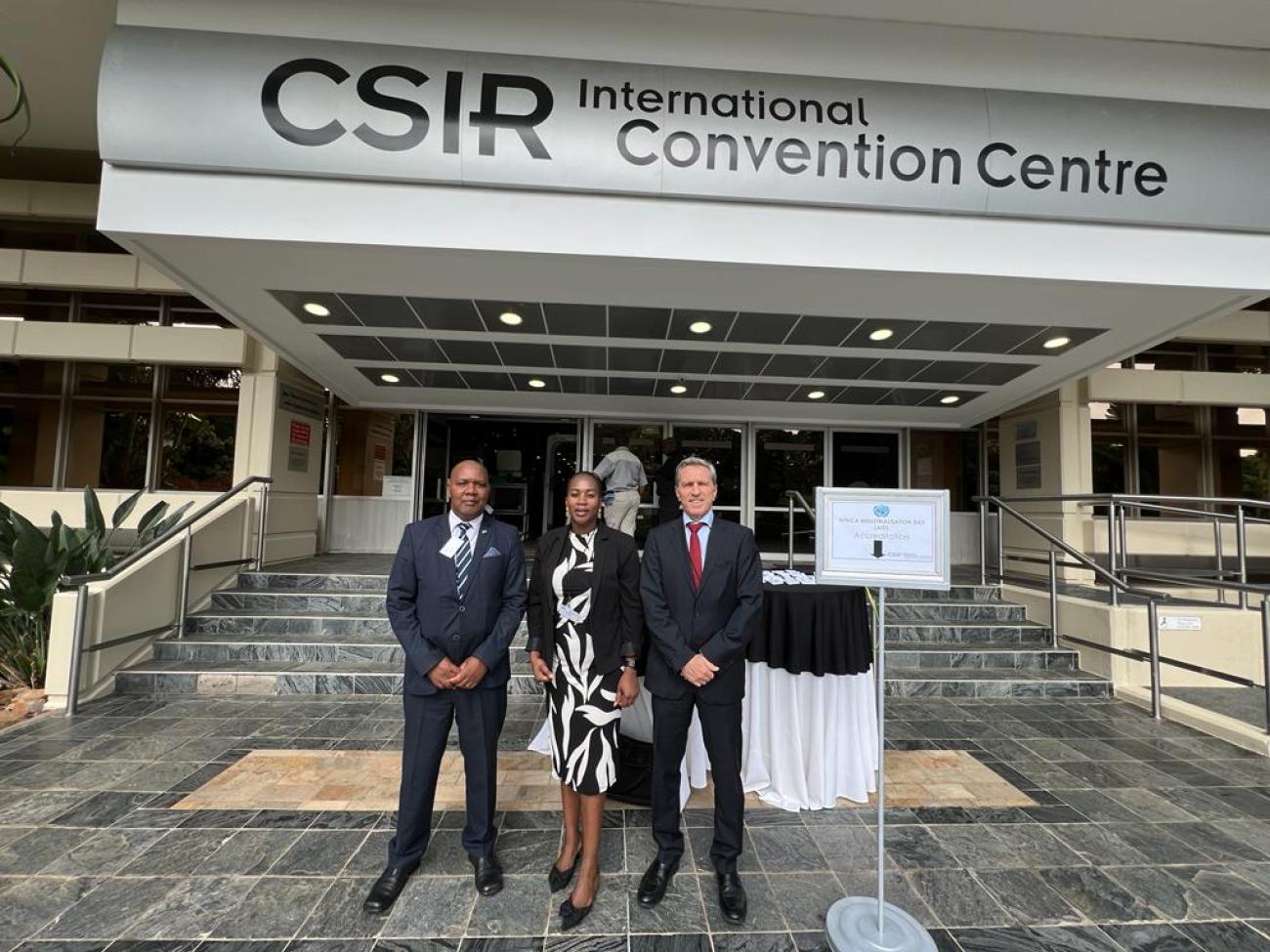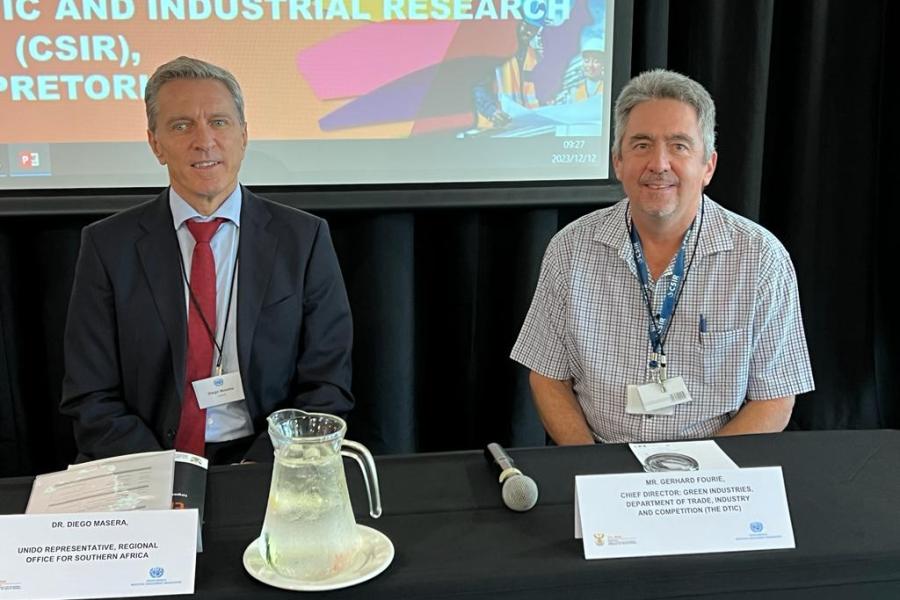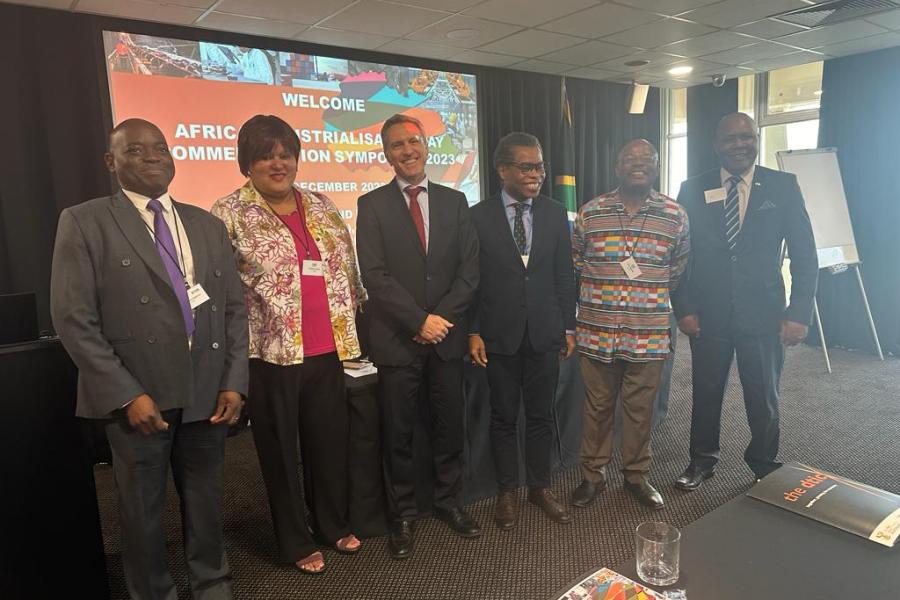UNIDO hosts Africa Industrialisation Day 2023 in South Africa

“Accelerating Africa’s industrialisation through the empowerment of African Women in processing for an integrated market.”
The United Nations Industrial Development Organization (UNIDO) and the Department of Trade, Industry and Competition (the dtic) in South Africa recently hosted the annual Africa Industrialisation Day (AID) under the theme “Accelerating Africa’s industrialisation through the empowerment of African Women in processing for an integrated market.”
Speakers addressed issues related to integrated and sustainable industrial growth on the continent and in South Africa, with a focus on the inclusion of African women, youth and vulnerable groups. It also addressed the green economy and trading within Africa, including the African Continental Free Trade Agreement..
In his opening address, Mr. Diego Masera, UNIDO Representative for the Southern African region, emphasised the importance of AID to the continent. “Africa’s industrialisation is the means to forging a future where economic development, job creation and shared prosperity are the hallmarks of this continent,” he said. This was followed by an overview of South Africa’s industrialisation priorities by Mr. Gerhard Fourie, Chief Director of the dtic’s Green Industries Unit.

In line with the theme of this year’s AID, the pivotal role of women’s participation in ensuring the sustainability of Africa’s industrial development was highlighted by all speakers. Ms. Valerie Geen focused on the importance of enabling economic participation of women in Africa’s industrialisation and shared the current status and challenges faced by female entrepreneurs to participate in opportunities.
This was echoed by Dr. Patrick Ebewo, Head of the Department for Management and Entrepreneurship and Head of the Centre for Entrepreneurship Development at the Tshwane University of Technology, who emphasised that cultivating inclusive ecosystems for women’s entrepreneurship development was key to ensuring the sustainability of Africa’s industrial development.
Mr. Levy Maduse of UNIDO gave a presentation on the organisation’s support for industrialisation in South Africa while Mr. Jaime Comiche, UNIDO Country Representative for Mozambique, addressed the issue of industrialisation in least developed countries (LDCs), specifically focusing on the case for Mozambique. UNIDO Country Representative for Zimbabwe, Mr. Tich Mushayandebvu, then shared information about industrialisation in Zimbabwe.
Speakers highlighted the imperative of leveraging technical resources and networks to attract the investments needed to drive inclusive and sustainable industrialisation and economic growth aligned to the aspirations of the AU Agenda 2063 and the New Decade of Women’s Financial and Economic Inclusion (2020-2030) committed to by African leaders.

Empowering women not only contributes to gender equality but also harnesses a wealth of talent, creativity and resilience, propelling our industries towards greater innovation and sustainable growth.
In addressing the importance of regional trade and integration, he said intra-African trade is currently below 20%. Regional collaboration therefore presents a tremendous opportunity for economic growth and development. “Regional integration is not merely an economic strategy; it is a pathway towards strengthening the fabric of African unity, fostering cooperation and building a collective resilience that can withstand global challenges.”
Finally, he urged all parties involved to carry forward the spirit of collaboration, innovation and empowerment that has defined the event, stating that “together, with the continued support of governments, organisations and individuals committed to the cause, we can accelerate Africa’s industrialisation.” The inputs and remarks of the speakers and audience echoed the remarks by UN Secretary-General Antonio Guterres during the international Africa Industrialisation Day celebrations on 20 November 2023:
“Accelerating Africa’s industrialisation is vital for growth, diversifying economies, building resilience, boosting employment, and combating poverty. Boosting the number of women in manufacturing jobs is the surest path to maximise productivity and guarantee that the benefits of industrial growth reach the families and communities of its workers. On Africa Industrialisation Day, let us re-double our efforts to dismantle barriers that prevent women from participating in – and benefiting from – industrial development and technological innovation”.



